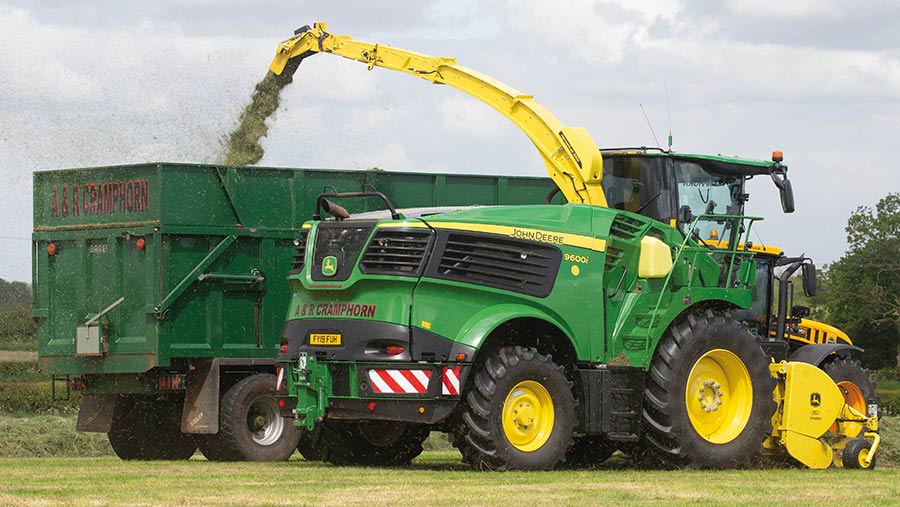NAAC farm contractor charges 2022-23
 © Tim Scrivener
© Tim Scrivener Farmers can expect an increase in contracting charges this year because of soaring fuel prices.
The National Association of Agricultural Contractors (NAAC) started drafting its annual guide with a baseline red diesel cost of 50p/litre, then resurveyed its members at 75p/litre.
Both were deemed unpublishable, so it is now set at £1/litre, and customers should be prepared for a further fuel surcharge if diesel expenses continue to climb.
Download NAAC farm contractor charges 2022-23
To illustrate the effect of input costs, take a forager team as an example. It could expect to use 2,500 litres of fuel a day which, in 2021, would equate to roughly £1,250.
However, this season the same outfit will be faced with a daily fuel bill of £2,500.
That cannot be absorbed by the contractor – especially when increases in the cost of labour, AdBlue, spare parts and replacement machinery are also factored in.
A fuel surcharge can be easily calculated by either monitoring fuel through telematics, or filling up before a job and working out how much has been used during the operation.
It is difficult to put an across-the-board percentage increase on prices, as individual operations vary widely, but many have risen by about 10-20%.
See also: What’s in Your Shed? visits Contractor of the Year Tim Russon
Online pricing tool
The NAAC recently launched an online pricing tool, developed in conjunction with Andersons Consulting, that allows its members to evaluate the cost of each operation.
It takes account of variables such as depreciation, machinery repairs and maintenance, insurance and office staff.
Job information can also be added – fuel cost, work rate, labour, downtime and profit – to produce a quote.
Pricing will be a balancing act for all parties, as everyone in the industry is faced with similarly tight margins, so farmers and contractors must work in partnership to ensure all businesses can remain viable, productive and sustainable.
Roger Dickinson from JO Straughan & Co, an agricultural, plant hire and haulage contractor based in north-east England, says he has encountered no resistance to price changes and customers remain supportive.
“We work together with them and let them know if there are going to be any significant increases.
“We have always had a sliding scale for fuel pricing, so the difference in cost quoted and the final cost is shown separately on the invoice to keep it transparent.
“Every operation has its fuel usage recorded daily and we operate telematics on our newest equipment, which links with the refuelling pump meters,” Mr Dickinson says.
To prepare for the unexpected, the business has terms and conditions stating that prices can change if there are issues out of its control.
Looking ahead, Mr Dickinson also plans to keep a closer eye on costs and adapt his budget accordingly.
He is already trying to forward plan with machinery dealers to account for the long lead times of some new equipment.
Only the foolish will try to cling to stationary prices this spring, as any contractor that understands their own costs will recognise that price increases are vital to keep pace, earn a living and retain some stability and longevity in their business.
Many farmers now rely on contractors to take on roles they may no longer have the staff, skills or machinery to complete – but contractors cannot be expected to bankroll their customers, and the industry must work together to share the costs.

